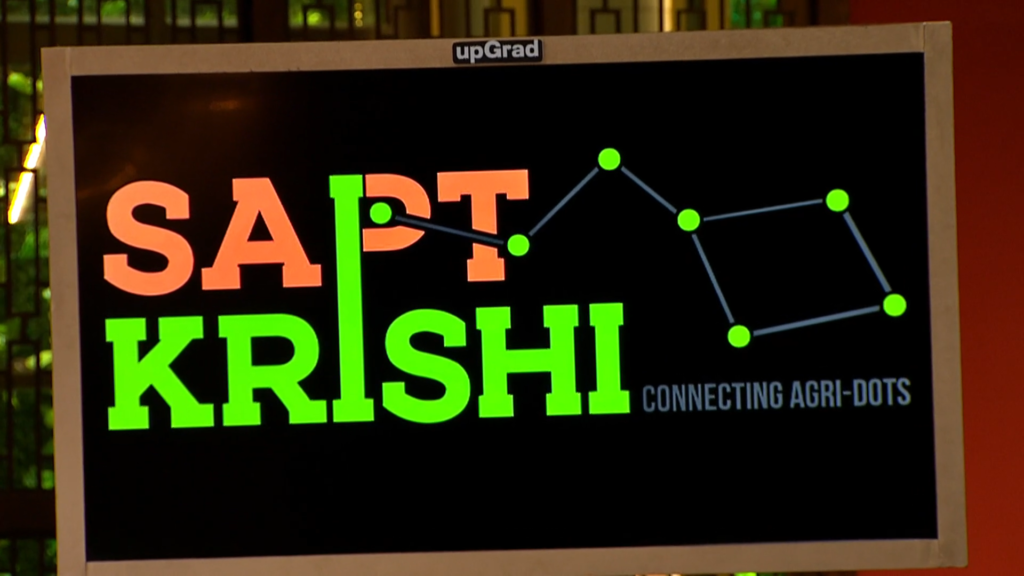Are you a regular viewer of Shark Tank India? Curious to know what happened in Episode 31, then you are at the right place. We have rounded up everything about Sabji Kothi by SaptKrishi, the entrepreneurs and their qualification to any deals offered.
In Episode 31, Rakesh Kumar Jha and Rashmi Jha from Bhagalpur, Bihar, came to the Shark Tank India show with their product called as Sabji Kothi.
Shark Tank India Episode 31 – The Problem Statement
Every street hawker faces the problem of ripening of fruits and vegetables. To counter this, they have to sell their vegetables and fruits at a much lower rate to the market. This is the problem of not only 10 crores farmers of our nation but also crores of people who trade in fruits and vegetables.
To sort out this problem, Rakesh and Rashmi came up with a product called Sabji Kothi and decentralized it to an extent that it can be owned by small vegetable vendors. Let’s check everything related to the Sabji Kothi product.
Trending Now: Shark Tank India Judges Net Worth
Highlights of SabjiKothi
- SabjiKothi is a storage where farmers can store fruits and vegetables, which increases the shelf life of fruits and vegetables by 3 to 30 days. It keeps the fruits and vegetables safe and fresh.
- Surprisingly, the product keeps fruit and vegetable fresh without using any chemical, refrigeration, or preservative.
- The product works at any temperature and can be deployed in an e-rickshaw, car, truck, or bus.
- Most importantly, the product needs only 10 watts of electricity, 2L of water in one week to run, and has zero maintenance.
The Technology behind SabjiKothi
- Sabjikothi work by construction of self-adaptable, ethylene oxidizing, and near-sterile microclimate in an insulated chamber. A small device is fixed inside Sabji Kothi, which arrests the ethylene gas and electronically oxidizes them into carbon dioxide, hydrogen, and water vapor.
- Additionally, the chamber of the Sabji Kothi product is near sterile, so it will prevent the growth of bacteria and fungus inside the chamber.
- It is available in 250 kg, 500kg, and 1000kg sizes.
- The selling price of the product is Rs. 10,000, and the Cost price is Rs 5,000
The Entrepreneurs and their Business
They asked for Rs 60 lakh in exchange for 2.5% equity of their company. The valuation of the company is 24 crores.
Funding from outside
- They have got invent funding of 15 lakhs two years back at the valuation of Rs 5 crore.
Educational Qualification of Entrepreneurs
- Firstly, Rakesh (26 years) had done engineering in Electrical and Electronics, then he had done masters in Ecology and Environment Science from the Nalanda University, and later he had done Ph.D. in design from IIT Kanpur. He has a diverse technical background.
- Rashmi (21 years) has done Biotechnology.
Shark Tank India Episode 31: Did Sharks Agree to Invest?
- Ashneer agreed to offere only if Rakesh agrees to make a smart crate. If he can develop a new smart crate, then he can invest in his company even in the next season.
- Anupam was also out from the deal, saying he didn’t find any market for this product in the retail industry.
- Aman also stepped out from the deal, saying Ashneer has more experience in this industry as he has been CEO of Grofers.
- Vinita also stepped out from the deal, saying it is a pre-revenue company.
- Namita went out from the deal saying the price of the product is quite expensive and she has no knowledge of this industry.
No deal was made from the side of Sharks for SabjiKothi, but all Sharks wished them luck!
If you have missed the show, you can watch that streaming on the SonyLiv app.
Stay tuned for more updates on Shark Tank India!

























